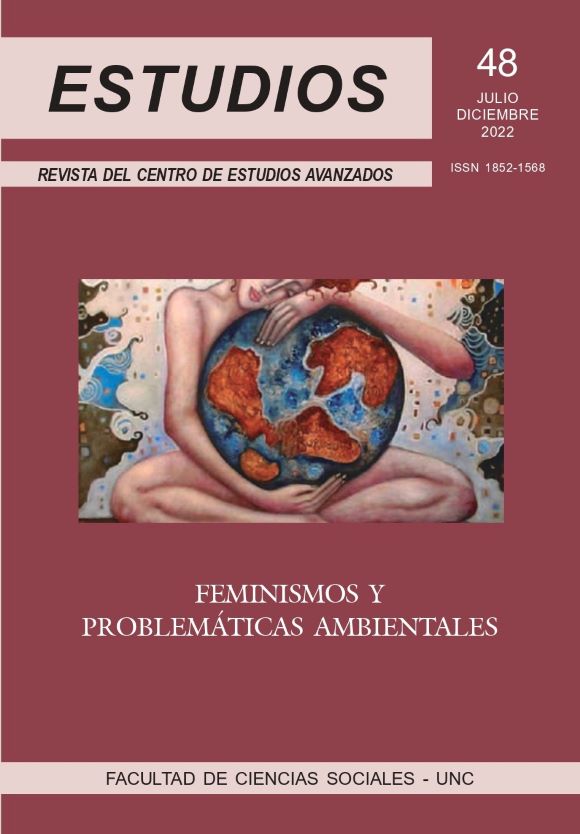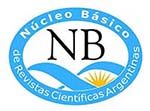Analysis of the ecofeminist perspective in the Law for the implementation of Comprehensive Environmental Education in the Argentine Republic
DOI:
https://doi.org/10.31050/re.vi48.38361Abstract
Formal education has a direct influence on the construction of a certain type of citizenship: on the production and reproduction of social imaginaries and individual and collective practices that has a direct impact on the environment, the society and the culture. The actual global ecological crisis allows us to affirm that changing the educational system is necessary to address the environmental and social consequences generated by the neoliberal and patriarchal capitalist system in which we find ourselves. Always maintaining a gender and inclusive perspective that fights against the oppressions of the dominant powers and promotes equity and social justice. This article analyzes the Law for the Implementation of Comprehensive Environmental Education in the Argentine Republic, which came into force in June 2021, and reflects on its impact on society from an ecofeminist perspective.
References
D’Eaubonne, F. (1974). Le feminisme ou la mort. Paris: Pierre Horay.
Daly, M. (1990). Gyn/Ecology: The Metaethics of Radical Feminism. Boston: Beacon Press.
Grupo Intergubernamental de Expertos sobre el Cambio Climático. (2021). Cambio climático 2021 (2021/17/PR). IPCC. https://www.ipcc.ch/report/ar6/wg1/
Herrero, Y. (2020). Conjugar futuros en tiempos de emergencia civilizatoria. Tiempo de Paz, 139, 56-64.
King, Y. (1989). The ecology of feminism and the feminism of ecology en J. Plant (Ed.) Healing the Wounds, (pp.18-28). Philadelphia: New Society Publishers.
Leff, E. (2011). La esperanza de un futuro sustentable: Utopía de la educación ambiental. Transatlántica de Educación, 9 (VI), 93-104.
Martínez-Alier, J. (2005). El ecologismo de los pobres. Conflictos ambientales y lenguajes de valoración. Barcelona: Icaria.
Martínez-Alier, J. (2008). Conflictos ecológicos y justicia ambiental. Revista Papeles, 103, 11-27.
Mies, M. (1986). Patriarchy and Accumulation on a World Scale. Women in the International Division of Labour Neuauflage. London: Zed Books.
Ministerio de Economía de Argentina (2020, marzo 16). Las brechas de género en la Argentina. Dirección de Economía, Igualdad y Género. https://www.argentina.gob.ar/noticias/la-direccion-de-economia-igualdad-y-genero-presento-el-informe-las-brechas-de-genero-en-la
ONU Mujeres. (2017, noviembre 8). El cambio climático es una cuestión que afecta a las mujeres. ONU Mujeres América Latina y el Caribe. https://lac.unwomen.org/es/digiteca/multimedia/2017/11/photo-climate-change
Plumwood, V. (1993). Feminism and the mastery of nature. London: Routledge.
Puleo, A. H. (2018). Ecofeminismo: Para otro mundo posible (6a). Ediciones Cátedra.
Shiva, V. (1995). Abraza la vida. Mujer, ecología y supervivencia. Madrid: Horas y HORAS.
UNDP & University of Oxford. (2021). The People's Climate Vote. https://www.undp.org/publications/peoples-climate-vote
Wissenburg, M. (1988). Green Liberalism: The Free And The Green Society. London: Routledge.
Zuluaga, G. P. (2014). Ecofeminismos: Potencialidades y limitaciones. En E. Siliprandi y G. P. Zuluaga (coords.), Género, agroecología y soberanía alimentaria: perspectivas ecofeministas (pp. 67-92). Barcelona: Icaria.
Downloads
Published
Issue
Section
License

This work is licensed under a Creative Commons Attribution-NonCommercial 4.0 International License.
Aquellos autores/as que publiquen en esta revista, aceptan los términos siguientes:- Los autores/as conservarán sus derechos de autor y garantizarán a la revista el derecho de primera publicación de su obra, el cual estará simultáneamente sujeto a la Licencia Creative Commons Atribución-NoComercial 4.0 Internacional que permite a terceros compartir la obra siempre que se indique su autor y su primera publicación esta revista.
- Los autores/as podrán adoptar otros acuerdos de licencia no exclusiva de distribución de la versión de la obra publicada (p. ej.: depositarla en un archivo telemático institucional o publicarla en un volumen monográfico) siempre que se indique la publicación inicial en esta revista.
- Se permite y recomienda a los autores/as difundir su obra a través de Internet (p. ej.: en archivos telemáticos institucionales o en su página web) luego del proceso de envío, lo cual puede producir intercambios interesantes y aumentar las citas de la obra publicada. (Véase El efecto del acceso abierto).












